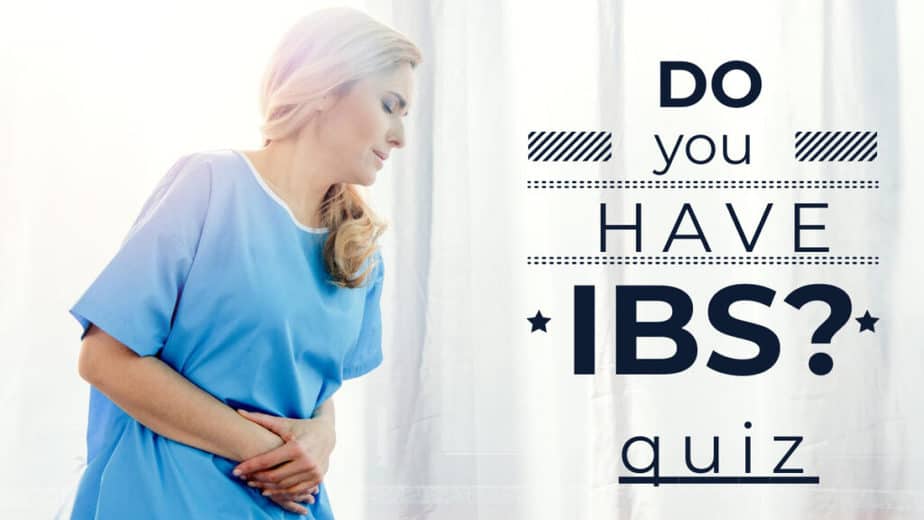If you are the kind of person who enjoys a hearty breakfast, then chances are you are also a huge fan of eggs. Eggs can be nutritious as they contain little fat and a lot of protein.
Whether they have been fried, poached or scrambled – eggs are an incredibly versatile food and feature as the main ingredient in a range of dishes and recipes.
But what happens if you experience stomach cramps or diarrhea every time you eat an egg? Why does that happen and what if you have IBS as well?
In this article, we are going to examine if eggs are bad for IBS, can eggs cause IBS symptoms, and what you can do to avoid these problems during breakfast.
We will also be taking a look at whether eggs are the cause of these symptoms or if they are simply the result of a problem inside your own body.
So without further ado, let’s take a look at eggs to see if they can cause IBS symptoms.
The Egg-IBS Connection: Fact or Fiction?
While many associate their post-egg discomfort with IBS, it’s crucial to differentiate between IBS triggers and potential allergies.
Eggs, in their natural state, lack the common IBS triggers like certain fats and fermentable carbohydrates.
However, the way they’re prepared can introduce these triggers. For instance, a buttery scrambled egg dish might introduce fats that could irritate an IBS-sensitive gut.
Do Eggs Cause IBS Symptoms?
If you always experience stomach cramps or diarrhea after eating your morning egg, then you may be wondering if eggs can cause IBS symptoms.
Well, we’re here to tell you that they can’t. Most IBS symptoms will usually be the result of triggers such as stimulants, fats, starches and fermentable carbohydrates.
Although eggs can be oily when you eat them, this is actually a result of how they are cooked and not an indication of what they contain.
Eggs are known to contain very little fat or fiber and instead consist of several different proteins that can be highly beneficial for your diet.
However, this does not mean that eggs should always be considered the primary cause of your IBS symptoms, as a dish such as eggs benedict may feature some of the triggers that we have mentioned.
For example, eggs benedict will often feature hollandaise sauce and bread, which can contain fermentable carbohydrates and fats that could result in IBS symptoms.
Although eggs may be the cause of these IBS symptoms, you should also consider other possible variables before seeking professional advice or help.
Why Do Eggs Cause IBS Symptoms?
As we previously mentioned in the section above, eggs typically do not cause IBS symptoms, as they do not contain the necessary triggers to make this a possibility.
So if you are constantly experiencing nausea, stomach cramps or diarrhea every time you eat an egg, then you may be questioning why this is the case?
Well, the short and simple answer to this question could be that you are suffering from an egg allergy.
These particular allergies usually occur when your immune system begins to react defensively to the proteins you’ve consumed, which can often result in symptoms that are very similar to those associated with IBS.
Beyond this, it is also hard to pinpoint how common egg allergies are, as in most cases the allergy will be self-diagnosed, which means there is not enough data to produce an accurate number.
However, it is safe to say that the allergy is the reason for IBS symptoms among most egg lovers, as eggs are not capable of producing IBS symptoms by themselves.
What Eggs Cause IBS Symptoms?
If you are suffering from an egg allergy, then you may have noticed how certain types of egg preparations may cause you more severe reactions than others.
For example, if you are partial to a poached or scrambled egg during the morning, then you may experience pronounced IBS symptoms. However, this does not mean that you will encounter the same effects when eating products that contain eggs, such as cakes and other confectionery.
This is because chicken eggs contain 5 different proteins, which can be easily denatured the longer they have been cooked. For this reason, some egg-based products will not cause the usual IBS symptoms because your body will not recognize the cooked proteins.
However, it should always be remembered that the egg is still the cause of any reactions you may have and should be avoided if you want to reduce future bowel troubles.
Egg Allergies vs. IBS: Understanding the Difference
Egg allergies primarily result from the body’s defensive reaction to proteins in eggs. Symptoms can mimic those of IBS, making it essential to differentiate between the two.
While IBS symptoms arise from dietary triggers affecting the gut, egg allergies are an immune response. If you suspect an egg allergy, it’s crucial to seek medical advice and potentially undergo allergy testing.
If you suffer from the symptoms we have previously mentioned, then chances are you will want to know how you can have your allergy diagnosed.
In some cases, eggs can cause an IgE mediated allergy, which can be evaluated with skin patch testing by an allergist. These typically result in itching, hives, and swelling of the lips, tongue or throat. In some cases, difficulty breathing and anaphylaxis can develop.
When the only problem with eggs is GI distress, unfortunately, there is no medical test to diagnose this particular condition, as the allergy is defined as a non-IgE mediated allergy. The only way it can be diagnosed is through the process of strict elimination.
This means that your dietitian or specialist will need you to eliminate eggs from your diet for a certain period of time, before beginning a slow and gradual reintroduction.
If you begin to exhibit the same IBS symptoms that you previously experienced, then this will mean that eggs are the cause of your discomfort, confirming your non-IgE mediated allergy of intolerance once and for all.
How to Eat Eggs with IBS
If you want to include eggs in your diet but cautious of potential IBS flare-ups, consider the following:
- Cooking Method: Opt for boiled or poached eggs, which use minimal fats in preparation.
- Monitor Portions: Start with smaller portions and note any reactions.
- Consider Alternatives: If whole eggs trigger symptoms, try egg whites or egg substitutes.
Should You See The Doctor?
If you are still unsure of where you stand when it comes to eating eggs, then the best advice is to pay your doctor a visit.
Beyond this, seeking medical help is always recommended if you are unsure of what is causing your IBS symptoms. Doctors will be able to diagnose and treat your condition and rule out other conditions that may result in similar or overlapping symptoms.
Are Eggs Bad For IBS? Final Thoughts
As we have previously mentioned, eggs are not capable of producing IBS symptoms on their own, as they do not contain the necessary fat or fiber to trigger the reaction.
If you are suffering from IBS symptoms after eating eggs, then you should consider other possible variables in your diet before branding eggs as the main cause.
Beyond this, the reason for your IBS symptoms could be an egg allergy or intolerance, in which your body begins to react to the proteins you consume.
If you discover that this is the cause of your symptoms, then you should eliminate eggs from your diet to avoid future reactions. Eggs in baked products may be tolerated more easily than eggs by themselves.
Just because you have IBS does not mean you should avoid eggs. This is because eggs contain a large amount of protein and are a nutritious food that can give your body the fat and protein it needs without causing any uncomfortable side effects.
Check out other IBS related articles:


